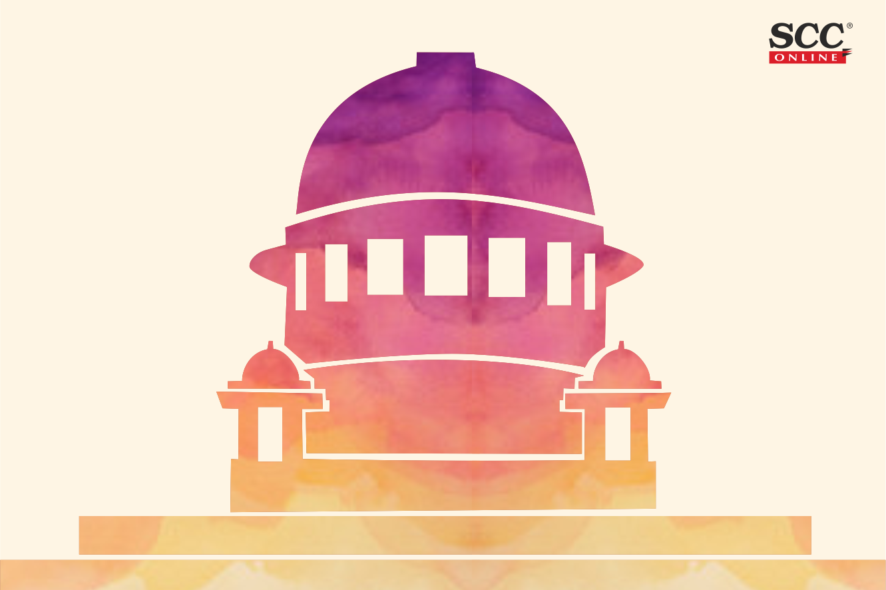Supreme Court: A Division Bench of S. Abdul Nazeer and Krishna Murari, JJ. refused to interfere in the judgment passed by the Gujarat High Court whereby the appellants (husband and mother-in-law of the deceased) were found guilty of committing cruelty to the deceased and abetting suicide committed by the deceased. Noting that although the prosecution failed to adduce any direct evidence to establish that accused abetted deceased into committing suicide, the Supreme Court observed:
“Admittedly, in the case at hands, the evidence clearly establishes the offence of cruelty or harassment caused to the deceased and thus the foundation for the presumption [under Section 113-A of the Evidence Act] exists. Admittedly the appellants have led no evidence to rebut the presumption.”
It was prosecution’s case that the accused husband constantly asked the deceased to bring Rs 25,000 from her father. On her failure to do so, the accused husband started frequently beating the deceased, and the accused mother-in-law used to pick up quarrel with her on the pretext that she neither knew how to cook nor did any household work properly. The deceased committed suicide by consuming poison at her matrimonial home for the sole reason that she was unable to bear continuous mental and physical cruelty meted out to her by the appellants in a short span of 8 months of her marriage.
The trial court convicted the appellants for offences punishable under Section 498-A (cruelty to women) and Section 306 (abetment of suicide) of the Penal Code, 1860. On appeal, the High Court confirmed the judgment of the trial court. Aggrieved, the appellants approached the Supreme Court.
At the outset, the Supreme Court noted that Section 113-A of the Evidence Act, provides for presumption as to abetment of suicide by a married woman within seven years of marriage, by her husband or any of his relative. Section 113-A reads thus: “When the question is whether the commission of suicide by a woman had been abetted by her husband or any relative of her husband and it is shown that she had committed suicide within a period of seven years from the date of her marriage and that her husband or such relative of her husband had subjected her to cruelty, the Court may presume, having regard to all the other circumstances of the case, that such suicide had been abetted by her husband or by such relative of her husband”. Further, the Explanation added to Section 113-A of the Evidence Act clearly provides that ‘cruelty’ shall have the same meaning as in Section 498-A IPC.
Considering first the offence under Section 498-A IPC, the Court noted the consistent evidence of witnesses who were related to the deceased. The Court opined that most often the offence of subjecting the married woman to cruelty is committed within the boundaries of the house which in itself diminishes the chances of availability of any independent witness. It was observed:
“The evidentiary value of the close relatives/interested witness is not liable to be rejected on the ground of being a relative of the deceased. Law does not disqualify the relatives to be produced as a witness though they may be interested witness.”
The Court found that the witnesses (family members) though related to the deceased, were natural witnesses. Their evidence was consistent without any material contradiction and inspired confidence. Thus, from the evidence of prosecution witnesses, the Court concluded it was proved that the deceased was harassed with a view to meet unlawful demand of Rs 25,000. The Court held that the prosecution was successful in proving the charge of cruelty under Explanation (b) of Section 498-A IPC.
Next, the question that fell for consideration was that the prosecution having successfully established the charge of cruelty as laid down in Explanation (b) of Section 498-A IPC and also the fact that the deceased committed suicide by consuming pesticide within seven years of marriage, whether the accused could also be held guilty for the offence punishable under Section 306 IPC with the aid of Section 113-A of the Evidence Act.
The Court noted that the prosecution failed to adduce any direct evidence to establish that the accused abetted deceased into committing suicide. The prosecution placed reliance on Section 113-A of the Evidence Act to establish the charge of abetment against the accused. Relying on its earlier order in Ramesh Kumar v. State of Chhattisgarh, (2001) 9 SCC 618, the Court concluded that to attract the applicability of Section 113-A of the Evidence Act, three conditions are required to be fulfilled: (i) the woman has committed suicide; (ii) such suicide has been committed within a period of seven years from the date of her marriage; (iii) the accused had subjected her to cruelty.
In the instant case, all the three conditions stood fulfilled. The deceased committed suicide within a period of seven years from the date of her marriage and accused had subjected her to cruelty, as it was confirmed that prosecution was successful in proving the charge of cruelty under Section 498-A IPC.
The Court said that it is no doubt correct that the existence and availability of the above said three circumstances are not to be invoked like a formula to enable the presumption being drawn and the presumption is not an irrebuttable one. However, in the instant case, the evidence clearly established the offence of cruelty or harassment caused to the deceased and, thus, the foundation for the presumption existed. Admittedly, the appellants led no evidence to rebut the presumption.
In such view of the matter, the Supreme Court held that the trial court, as well as the High Court, committed no illegality in holding that the appellants abetted suicide of the deceased. The appeals were therefore dismissed. [Gumansinh v. State of Gujarat, 2021 SCC OnLine SC 660, decided on 3-9-2021]







